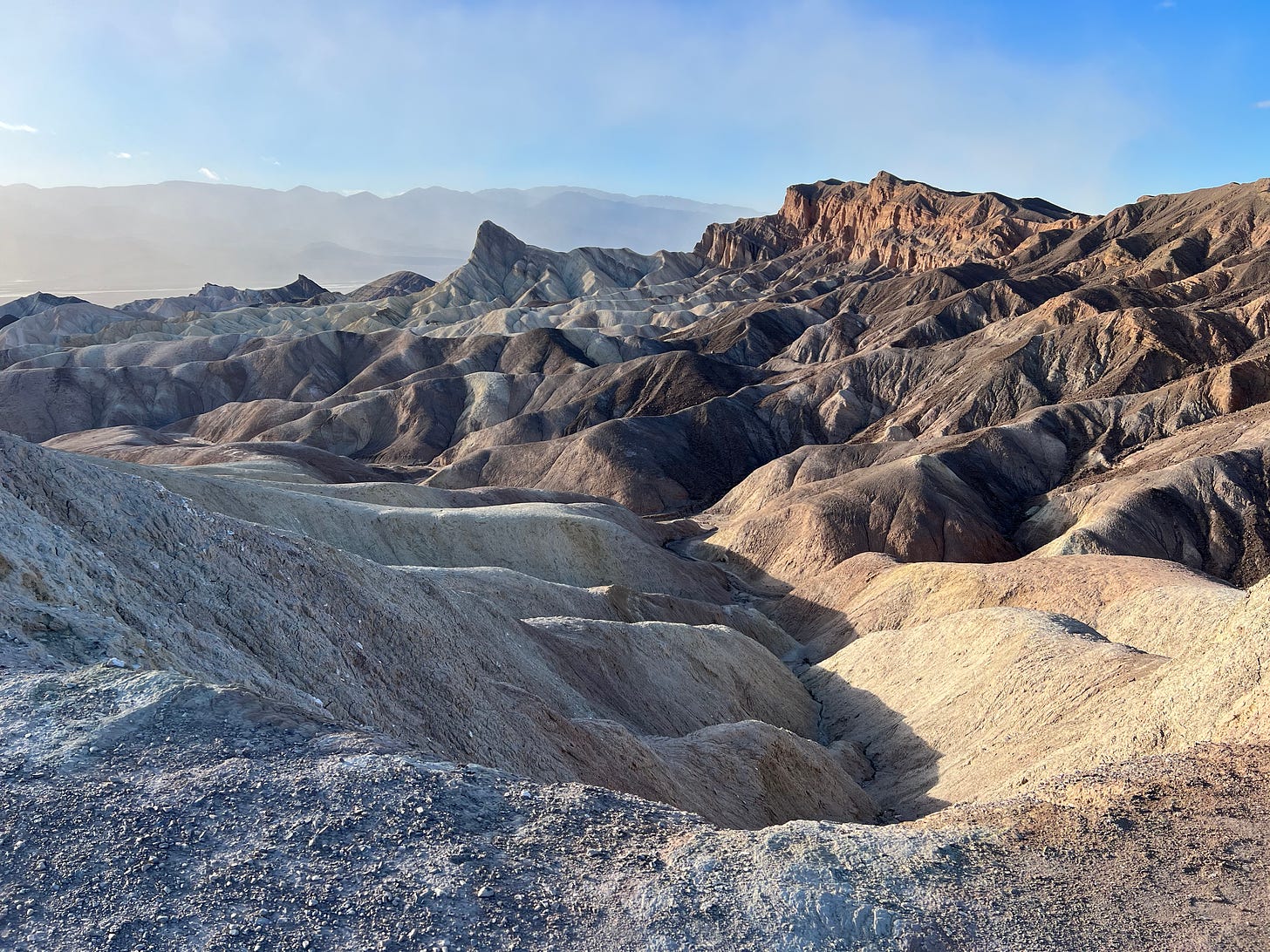Roughly five years ago, I decided to overhaul my relationship with social media1. That involved deleting my Facebook2, Twitter and Instagram accounts, and starting up this newsletter as a means to keep in touch with people instead.
I don’t regret doing so for an instant. In his recent interview with the attention researcher Gloria Mark, Ezra Klein did a good job of articulating why when he said: “[…] I am so convinced that attention is the most important human faculty. That at the end of your life, what was your experience of your life? It was the experience of the sum total of the things that you paid attention to. And yet, we treat our attention so poorly. We dissipate it amidst so much garbage. And the modern world is simply exhausting for it.”
I’ve learnt, though, that even without the likes, shares and scrolling of social media, my attention is often under assault. At the faintest onset of boredom or fatigue, I have a tendency to check the NYT homepage, or my email inbox.
Getting sucked into newsletters and articles comes at a cost: it’s not just the time that gets squandered (though that can be significant) — but also the way these distractions make it much harder to stay focused on/return to challenging and less “exciting” tasks. (No prizes for guessing what typically wins when it comes to opening the Iliad versus reading a
newsletter.)I want to spend more time reading books, and more time writing too — tasks that require sustained, focused attention, the very kind of attention so easily derailed by online distraction. And so, I’ve begun fighting back. This isn’t about ditching digital tools or unsubscribing from emails en masse — but rather about attempting to (re)establish boundaries so that I have greater mastery over them3. One way I’m doing this is through self-binding techniques such as putting my phone temporarily on flight mode or using the “distraction blocker” Freedom. Another is through keeping logs of my writing and meditating4.
A recent WashPo column powerfully enumerates the psychological, social — and, yes, environmental — benefits of observing a weekly sabbath (no matter your spiritual persuasion). Early on in the pandemic, I instituted one but I didn’t keep it up. The time is definitely ripe for a reinstatement.
Questions I’m continuing to mull over:
How can I live a more analogue life?
When I am online, how can this time be more focused, intentional and constructive?
Time spent on task is important. But, what steps can I take to encourage the creative percolation that is arguably just as valuable?
If you have thoughts or suggestions about the above, I’d love to hear them.
In
’s wonderful newsletter, Amelia Greenhall recently wrote about creating a winter plan — “a list of things that you’d like to do this winter, that will make you happy”. Topping mine are:Soaking in hot springs
Spending time in the desert
I’m grateful I was able to tick off both of these on a road trip to Palm Springs a few weeks ago. The landscapes we drove through — rippling, barren beauty under vast, crisp skies — were strikingly unique and yet also delightfully reminiscent of the Richtersveld and Tankwa Karoo. What a tonic!
Serendipitously, the Palm Springs International Film Festival was on while we were in town, so I got to see Opponent, Sweden’s entry for this year’s international film Oscar. I hope it wins — it’s devastatingly beautiful.
This came after reading Cal Newport’s Deep Work, Matt Haig’s Notes on a Nervous Planet, and Craig Mod’s essay, How I Got My Attention Back. Craig’s piece, Tiny Loops, Hold Me Closer (about “how apps suck us in and never let us go”) and Jenny Odell’s marvellous book, How to Do Nothing, have also helped shape my thinking about attention.
The other major reason I deleted Facebook was because I was so appalled by the overreaches of untrammelled surveillance capitalism, and its deleterious effects on democracy.
My father used to say a knife was “a good tool, but a bad master” and I think this is apposite for tech. Our smart phones and computers are extraordinary inventions — but their true value and benefits will only be fulfilled if we get better at how and when we use (and don’t use) them.
Tracking offers a spur of motivation — noting down a day’s meditation or the time I’ve spent writing is inherently satisfying. Conversely, having to fess up to not having written or meditated leaves me with niggling disappointment.





Very thought provoking...I'm going to share this dispatch with my teenage kiddos. And think about the ways I can be more deliberate with my attention. Thanks for sharing!
This really resonated with me! Thanks so much for writing and the good ideas in here. If anything, I feel slightly less alone 😉